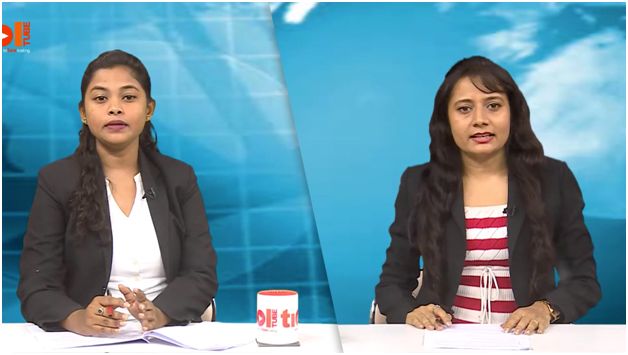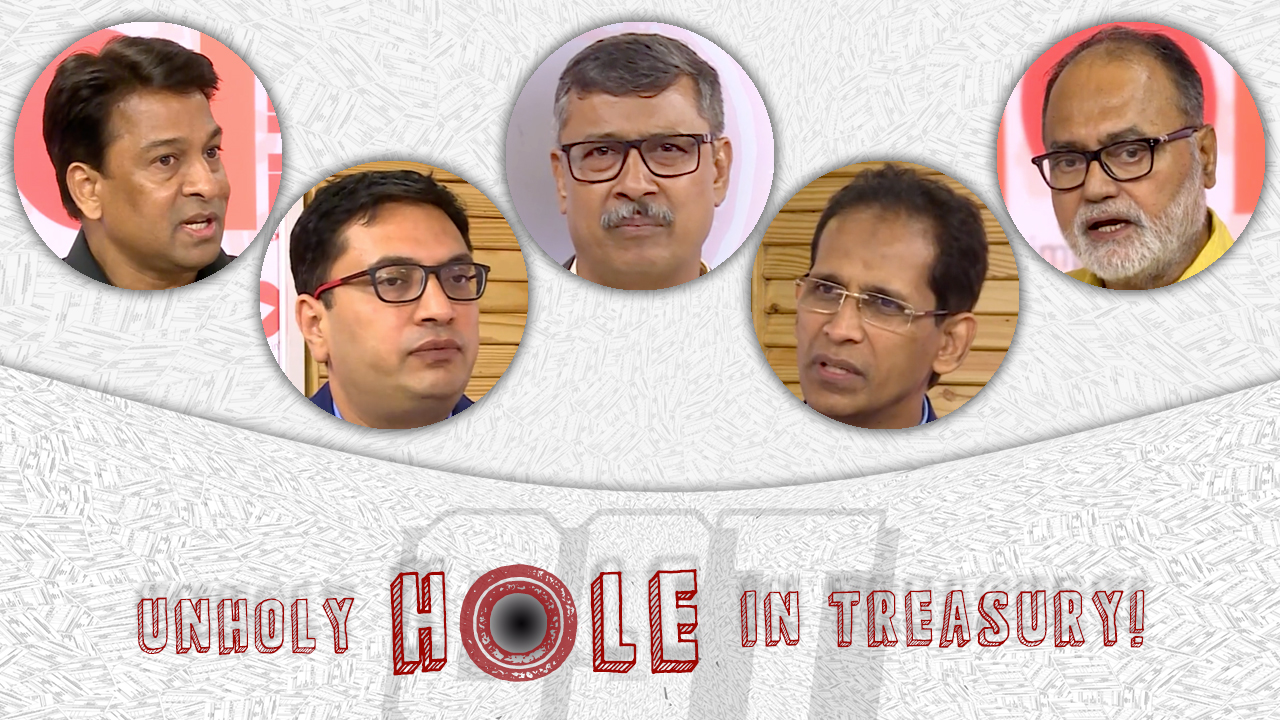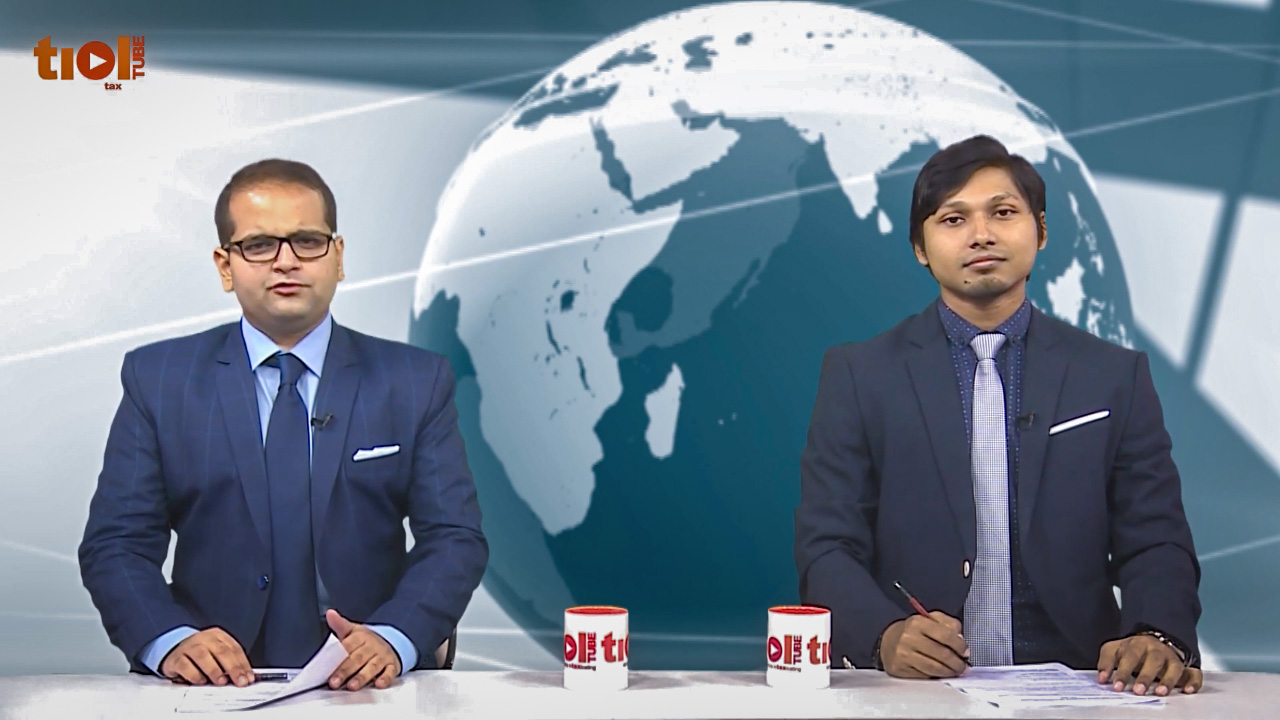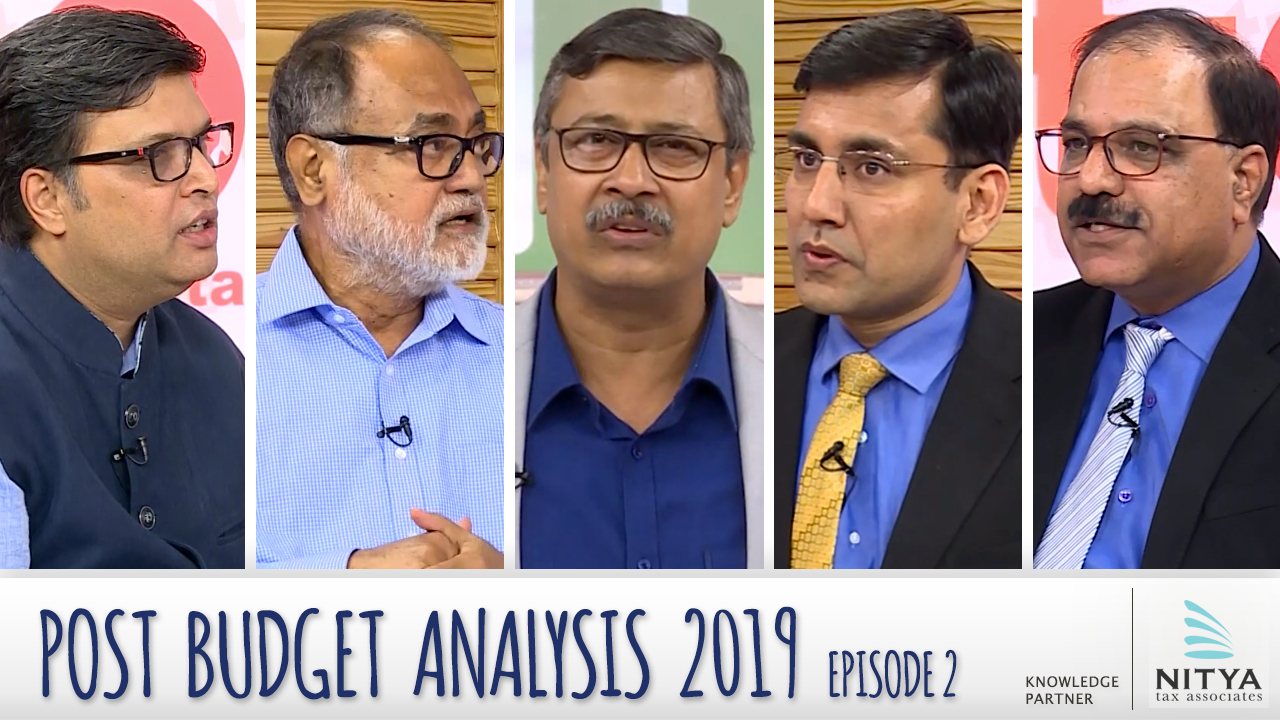|
SERVICE TAX
2019-TIOL-1724-HC-MUM-ST
CST Vs Tata Aig Life Insurance Company Ltd
ST - Counsel appearing for the applicant states that she is briefed only in Central Excise Appeal No.110 of 2019 and not in Central Excise Appeal No.225 of 2014 - hearing of these two appeals is adjourned by a week – Bench makes it clear that on the next occasion if the Revenue is not represented to prosecute its Central Excise Appeal No.225 of 2014, it would be inclined to dismiss the Revenue's appeal - Stand over to 7th August, 2019: High Court [para 7, 9]
- Matter adjourned
:
BOMBAY
HIGH COURT
City Union Bank Ltd Vs CCE & ST
ST - The assessee is registered service provider under category of 'Banking and Financial Services' - The issue in dispute pertains to liability of assessee to pay service tax on NOSTRO, VOSTRO and SWIFT charges paid to overseas banks, from whom they were availing the services - There was indeed considerable confusion on the taxability under reverse charge basis on Nostro, Vostro and Swift services availed from overseas banks, thus the issue was interpretational in nature - There is also no evidence of deliberate suppression, fraud, mis-statement with intent to evade payment of tax on the part of assessee - In fact, on being pointed out, they have paid up the tax liability along with interest thereon even before the issue of SCN - The penalties imposed on assessee under Sections 77 & 78 of Finance Act, 1994 are set aside - No other interference is made in the impugned order: CESTAT
-Appeal partly allowed : CHENNAI CESTAT
Visakhapatnam Port Trust Vs CC, CE & ST
ST - Whether the appellant is liable to pay service tax on "terminal charges" received by them from Indian Railways; on "demurrages" which they have collected from various clients; on "royalty" which they received from terminal operator with whom they entered into a contract on Build-Operate-Transfer basis (BOT).
Held:
+ Services rendered by the appellant, who are undisputedly a major port, in the port area for Indian Railways and for which they are getting paid is squarely covered by the definition of port services - Exemptions available under Sec.99 of the Finance Act, 1994 and the notification 43/2012-ST dated 2-7-2012 are available to the services ‘rendered' by the Indian Railways and cannot be extended to services ‘received' by Indian Railways - appellant is, therefore, liable to pay the service tax on the terminal charges which they received from the Indian Railways: CESTAT [para 10]
+ In view of the lack of clarity of the nature of demurrage charges as to whether these are the charges levied by the Indian Railways and only collected by the appellant and transferred to the Railways or only collected by the appellant from the client on their own, Bench finds it is a fit case to be remitted back to the original authority for determining as to who is service provider, what is the nature of service and who is the client paying the service charge: CESTAT [para 11]
+ Appellant is not liable to pay any service tax on royalty charges received by them from their container terminal operator because the service is in the nature of a joint venture and not in the nature of service provider and service recipient relationship: CESTAT [para 12]
ST - Limitation and penalty - Appellant is an organisation under the Government of India and it is extremely difficult to imagine that they have an intention to evade payment of service tax - It is true that their understanding of the law could be different from that of the department - It is not in dispute that the appellant filed their ST-3 returns and were audited and they had provided whatever information was sought by the department - In view of the above, the extended period of limitation cannot be invoked and for the same reasons, there are sufficient grounds to invoke Sec.80 and waive penalties under Sec.76, 77 & 78: CESTAT [para 13]
-Appeals disposed of : HYDERABAD CESTAT
CENTRAL EXCISE
API Motors Pvt Ltd Vs CCE
Central Excise - The appellant factory is a new factory in specified area under Notfn 50/2003-CE as amended & engaged in manufacture of Three Wheeler Auto Rickshaw Chassis fitted with Engine Assembly - The appellant factory started commercial production from 14.6.2007 and first clearance was made on 15.6.2007 - They inadvertently did not file the declaration with the Central Excise authorities either from start of commercial production or before effecting first clearance - The appellant filed declaration on 19.3.2008 giving all the required information - The department kept mum for a long period and issued SCN dated 8.10.2011 invoking extended period wherein it has been alleged that the appellant did not file declaration as required under said Notification before effecting first clearance, therefore benefit of exemption under the said Notification is not available for the period 15/06/2007 to 18/03/2008.
Held: It is undisputed fact that while the appellant started availing of exemption from 15.6.2007, when the first clearance was made, they filed the declaration on 19.3.2008 - There is no dispute that the goods being manufactured are not in the negative list of Annexure-I, and the unit is located in the specified Industrial Area mentioned in Annexure-II to the Notfn 50/2003-CE - Since, the declaration has been made by appellants themselves on 19.3.2008 and the same is correct, the jurisdictional Central Excise Authorities should have examined the question regarding the appellant company's eligibility for exemption during the period prior to 19.3.2008, but they chose to sleep over the declaration and issued a SCN on 8.10.2011 - The appellant cannot be charged with suppression or mis-statement for more than three years long delay in issue of SCN - The proviso to sub-Section 11A(1) cannot be invoked by the department - Hence, the SCN is time barred and the impugned Order is not sustainable on the ground of limitation: CESTAT
-Appeal allowed : DELHI CESTAT
Olam Agro India Pvt Ltd Vs CC, CGST & CE
CX - The assessee is engaged in manufacture of "Cane Sugar and molasses" and availing facility of Cenvat Credit - During audit, it was noticed that the assessee had purchased staging structure from M/s. Uttam Industrial Engineering Ltd. and have availed Cenvat Credit thereupon treating the said goods as capital goods - The Department alleged that the goods being falling under Chapter 73 are not covered under the definition of capital goods, nor they appeared to be the inputs for the assessee - A SCN proposing the recovery of aforesaid amount of Cenvat Credit availed was issued, simultaneously, proposing the interest on the said amount and penalty upon the assessee - From the purchase order, it is apparent that a purchase order was placed as per the technical specifications - Keeping in view the scope of work required for Energy Efficient Expansion of the Sugar Mill of assessee - It stands clarified from the purchase order itself that existing sugar mill was proposed to be modified and for the said modification, the apparatus was purchased - Technological structures and staging are part of the machineries, in the sense that different equipment and plant like Pans, Crystallizers, Tank are erected at a given height, and base which is provided by these technological structures and staging - The plant and machineries will be incomplete without these structures and staging - When Tribunal applies the "user test" to the case in hand, the structural steel items have been used not merely for the fabrication of support structures for capital goods, but for making the equipment to function technically - Thus, these structures are actually the component of sugar mills without which it cannot give the output efficiently - It is apparent from the submissions of assessee that the impugned articles were required to suitably support and facilitate the smooth functioning of machines of the sugar mill and as such, while applying the principle of user test such structures have to be considered as the part of the relevant machines - Since the definition of capital goods includes components, spares & accessories of such capital goods, the impugned structural items would fall within the ambit of capital goods as contemplated under Rule 2 (a) of Cenvat Credit Rules - Hence, assessee is held entitled to avail the Cenvat Credit - The adjudicating authorities have ignored the Chartered Engineers Certificate, which is the most relevant document to form an opinion about the user test principle held by Supreme Court and which was utmost relevant to distinguish the fact of the present case from that of Vandana Global 2010-TIOL-624-CESTAT-DEL-LB - The said decision of Larger Bench has been set aside by the High Court of Chhattisgarh in case of Vandana Global 2017-TIOL-2853-HC-CHATTISGARH-CX - The department's appeal before Apex Court though has been filed, but no stay to the decision has been announced - Thus, till any further orders, the decision of Chattisgarh High Court has to stand - Also Department's own Circular has also not been relied upon - Resultantly, the order under challenge is set aside: CESTAT
-Appeal allowed : DELHI CESTAT
Standard Industries Ltd Vs CCE
CX - The assessee-company manufactures Cotton & Polyester Cotton blended textile fabrics and yarn as well as fusible inter-lining fabrics - The fabrics were classified & cleared under Tariff item 19(i)(b) of the First Schedule to the erstwhile Central Excise Tariff - After enactment of the CETA, the goods were classified under Chapter 52 or Chapter 55 w.r.t. base fabric - Such classification was approved by the jurisdictional Asst. Commissioner - Thereafter, the Revenue officers visited the assessee's factory & seized raw material and other documents - Thereafter, an SCN was issued alleging that the products had been mis-declared under the wrong tariff headings & that the goods were under-valued - It was also alleged that the goods were sold through related persons & so the sale price of the related person was made the basis for computing the duty demand - The SCN also alleged clandestine removal of goods without payment of duty - SCN was issued proposing to recover duty on the confiscated goods & impose penalty - On adjudication, duty demand was raised & the seized goods were confiscated with option of redemption fine being given & penalty being imposed - On appeal, the Tribunal quashed such order & remanded the matter - The fresh O-i-O too was dismissed by the Tribunal & the matter was remanded again - On the third time, the Commr. re-iterated the demands with interest, penalty & appropriation of amounts already paid - Hence the present appeal by the assessee.
Held - The assessee was unable to substantiate its claim that the duty demand as determined by the Commissioner is not in accordance with the evidence available on record - The assessee was also unable to produce documents or records to contest the duty demand raised by the Commissioner - Without any tangible evidence, the assessee's submissions lack merit - The penalty imposed u/r 173Q was quashed by the Tribunal in the earlier round of litigation - Hence the same cannot be upheld & must be set aside: CESTAT
- Assessee's appeal partly allowed : MUMBAI CESTAT
CUSTOMS
Associated Chemical Corporation Vs Commissioner
Cus - Whether the refund of SAD filed beyond the period of one year can be allowed - The assessee had filed the total refund of Rs.20,04,286/- on 30.12.2016 for the import made on 15.12.2015 under Notfn 102/2007-Cus - The Adjudicating authority sanctioned refund except for Rs.1,25,920/-, observing that since the said refund claim pertains to import made on 15.12.2015 and payment of SAD was made on 18.12.2015 but filed on 30.12.2016, hence, barred by limitation - Undisputedly, the refund of 4% SAD filed was in relation to import made on 15.12.2015 involving the amount of Rs.1,25,920/- and the applicable duty was paid on 18.12.2015, i.e. beyond the period of one year as prescribed under the said notification - The issue is no more res integra and covered by the judgment of Bombay High Court in case of DSM Sinochem Pharmaceuticals (I) Pvt. Ltd 2017-TIOL-2334-HC-MUM-CUS - The impugned order is upheld: CESTAT
- Appeal dismissed : MUMBAI CESTAT
Alert Enterprises Vs CC
Cus - Appellant had filed BE for clearance of Hair Dryer, Hair Straightener, Hair Treatment Clipper, Shavers, Knitted Lady Tops, Tungsten Carbide Tips, (in Kgs.), Tungsten Carbide rods, Power (Balancing) wheel, (Small Balancing Wheels) and Drill Bits etc. at assessable value of Rs. 31,84,945/- - DRI, upon examination of these goods found that Power Wheel (Small (Balancing) Wheel) was misdeclared as skates whereas the items viz. Tungsten Carbide Tips, Tungsten Carbide rods and Drill Bits were not declared in the said Bill of Entry - Adjudicating authority rejected the declared value and re-assessed the same as Rs. 49,55,515/- with differential Customs duty of Rs. 6,76,200/- - confiscation was also ordered with an option to redeem the same upon payment of RF of Rs.16.50 lakhs and a penalty of Rs.6,76,200/- was also imposed - Commissioner (A) upheld the order - incidentally, as the consignment was a live one and the appellant was incurring heavy demurrage and detention charges and to meet their business obligation, they waived the written SCN and agreed to pay the duty along with RF and penalty pursuant to which the consignment was released - nonetheless, an appeal has been filed before CESTAT on the ground that there is no estoppel in law to challenge the impugned order although duty, fine and penalty has been paid.
Held: Insofar as the mis-declared items are concerned, the appellant has submitted a letter stating that the same was a mistake on the part of the shipper and for which they are not liable to be punished; that they have accepted the value arrived under rule 7 of the Valuation Rules by conducting market survey and paid the duty - however, the market survey report has not been signed by the traders regarding the average sale price - furthermore, the shopkeepers/traders with whom enquiry was conducted have informed that the goods were of very inferior quality and hence prices of the goods would be lower than the other genuine or high quality goods sold in the market, therefore, the market survey report cannot be relied upon in view of Tribunal decision in Scorpian International = 2017-TIOL-2734-CESTAT-DEL - although the appellant has paid the duty along with fine and penalty, it is evident that the lower adjudicating authority has not recorded the reason as to why he has resorted to valuation under rule 7 without exhausting provisons of s.14 and rules 3, 4, 5 of the Valuation Rules - Therefore, the order passed by the lower adjudicating authority is contrary to the Customs Valuation Rules, which was also not corrected in the impugned order by the Commissioner (Appeals) - Impugned order set aside and appeal allowed with consequential relief: CESTAT [para 6, 7, 8]
Cus - Corrigendum dated 28.9.2016 has been issued to the order of adjudicating authority and wherein the demand has been confirmed by Commissioner of Customs (Export, ICD) under Rule 5 of the Customs Valuation Rules read with Section 14 of the Customs Act - if this Corrigendum has been issued by the Commissioner of Customs then the Commissioner (Appeals) is not competent officer to hear the appeal - Further, Rule 5 of the Valuation Rules, which deals with the transaction value on the basis of similar goods, has not been properly spelt out in the said Corrigendum - adjudicating authority has also not produced the value of the similar goods to the imported consignment: CESTAT [para 7]
- Appeal allowed : DELHI CESTAT |
|








